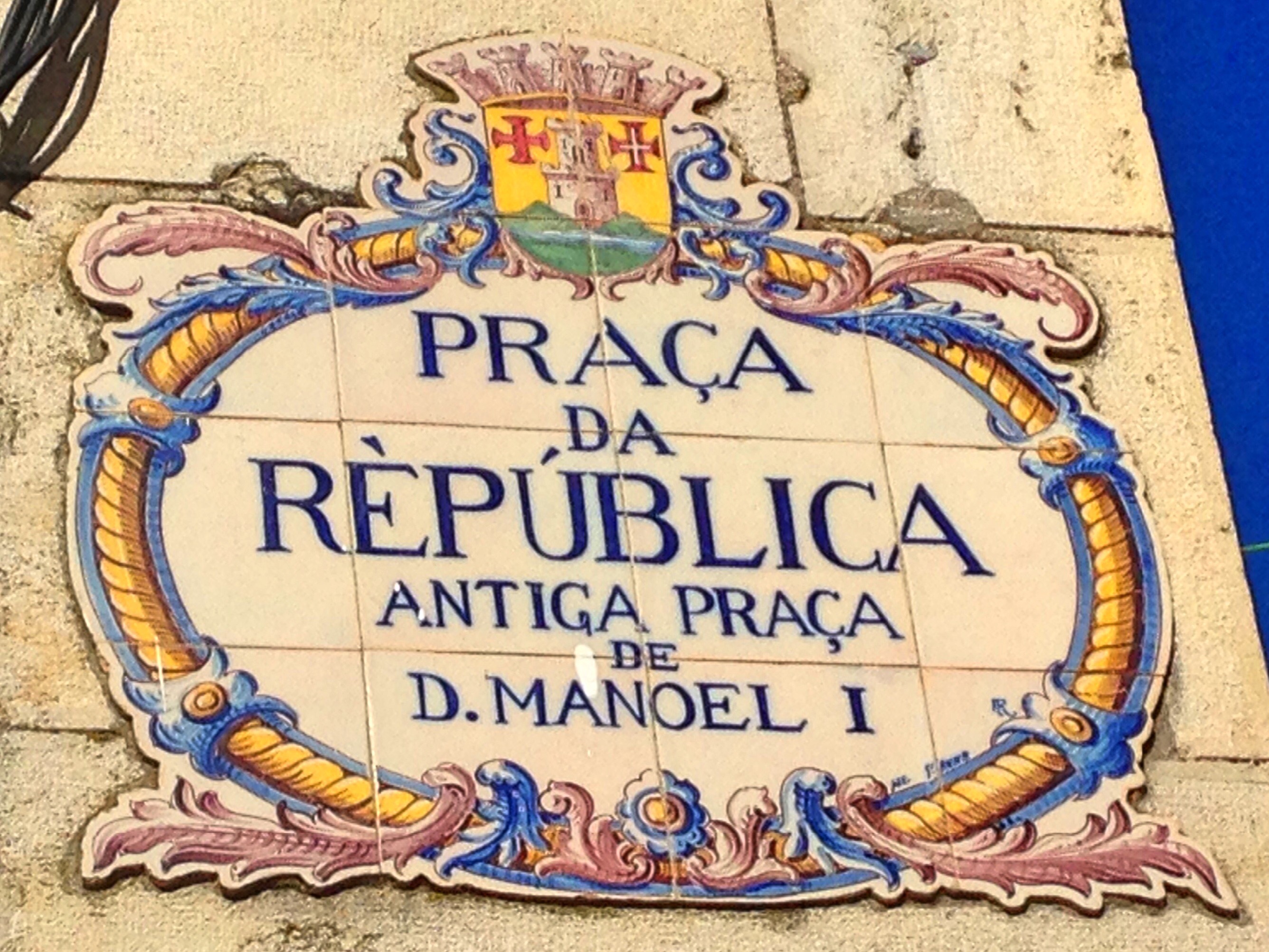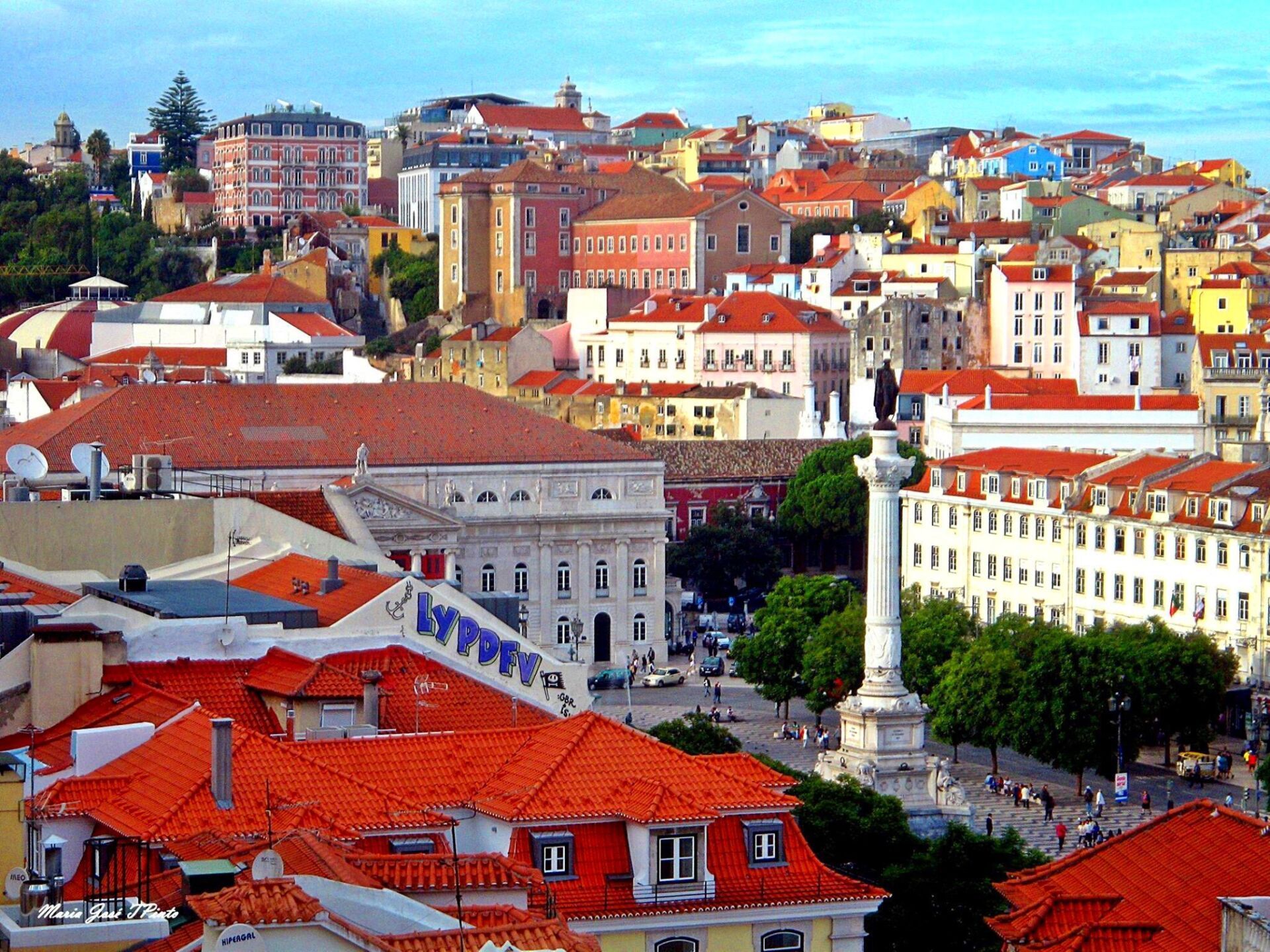By now, I hope to have convinced you to visit Portugal. If so, you will be wondering how, without knowing any Portuguese, you’ll get around all the sights and try all the foods I’ve written about so far. I’ve got two pieces of good news: 1) A large percentage of the population speaks English and some speak French. We can all understand and be understood in Spanish. 2) I’ve prepared a handy phrase book for you, because even though we can communicate in other languages, we always appreciate an effort from visitors to speak a little Portuguese. It is especially useful if you’re somewhere off the beaten path without menus and signs in English. Print it out for your next trip – it’s so light you won’t even feel it in your bag.

Basic phrases
Good morning / good afternoon / good night
Bom dia (bon dee’-ya) / boa tarde (boa tard) / boa noite (boa noyt)
Please
Por favor (poo-r fav-ohr’) / se faz favor (se fash fav-ohr’)
Thank you
Obrigado(a) – you say obrigado if you’re male and obrigada if you’re female
Do you speak English?
Fala inglês? (Fa-la een-glesh’)
Getting around (simplified)
When in a taxi: To (name of place) please
Para … por favor (para… poo-r fav-ohr’)
Where is…?
Onde é…? (ond)
…bathrooms?
…casa de banho? (…casa de ban’-yoo)
…restaurant?
…restaurante? (rsh-tao-runt’) (A tasca (tash’-cuh) is a no-frills, informal restaurant)
…station?
…estação? (esh-ta-ssao’)
…beach?
…praia? (pr-ai’-uh)
…mall/shopping center?
…centro comercial (cen’-troo coo-mer-see-al’)
…hotel?
…hotel? (o’-tel)
…bank?
…banco? (bun’-coo)
…shop?
…loja? (law’-juh)
…grocery store?
…supermercado? (super-mer-cah’-doo)
…pharmacy?
…farmácia? (phar-mah’-see-ah)
Where can I park?
Onde posso estacionar? (ond posso esh-tah-see-oo-nar’)
Useful phrases
It was very good! (Relating to food, for example)
Estava muito bom! (esh-tah’-vah mooy-too bon)
How much is it?
Quanto é? (quan’-too eh) (The é is pronounced like the first e in elegant)
The bill please
A conta por favor (uh conta poo-r fav-ohr’)
Food
Espresso
Café/bica (cuh-feh’) (The é is pronounced like the first e in elegant) / (bee’-cuh)
Tea
Chá (shah)
Cake
Bolo (bow’-loo)
Custard tart
Pastel de natas (pash-tel’ de nah’-tush)
Soup and sandwich
Sopa e sanduíche/sandes (a steak sandwich is called a prego) (soh’-pa ee sand-weesh)
Steak
Bife (beef)
Meat
Carne (carn)
Fish
Peixe (pay’-sh)
Red/white wine
Vinho tinto/branco (veen’-yoo teen’-too / brun’-coo)
Vegetarian
Vegetariano (vegetariana if you’re female) (ve-ge-tuh-ree-uh’-noo)
Breakfast
Pequeno-almoço (pe-ken’-oo al-moh’-soo)
Lunch
Almoço (al-moh’-soo)
Mid-afternoon snack
Lanche (lun’-sh)
Dinner
Jantar (jan-tar’)
Allergy
Alergia (uh-ler-gee’-uh)
Useful words
Pull
Puxe (poosh) (I know, so confusing!)
Push
Empurre (em-poo’-rre)
Ticket
Bilhete (bee-lyet’)
Guide
Guia (can be used both for a person or a book, pronounced with a hard g as in guide: gee-uh)
Foreign exchange
Câmbio (cum’-bee-yoo)
Comment below if I’ve forgotten anything or you’re curious about something!



Casa de banho is more common here? Never heard anyone ask for lavabos. Is it a city thing?
Thanks Sally! I totally agree with you on it being more common but it’s also more informal and harder to pronounce. Lavabos is really the technical term that you’d use on a plane, for example, because it doesn’t have an actual bath tub or shower. I’ll edit the text though to reflect this as I know what you mean – I always ask for the casa de banho, even though it is not always technically correct.
I speak fluent Portuguese and agree that lavabos would only really make sense on a plane. Casa do banho is the best way to say bathroom. And as for it was very good, estava muito bom might not work…. Perhaps foi muito bom would be better….
Thanks for the feedback! By popular demand, I’ll get rid of lavabos 🙂
Estava muito bom in this context was more for a meal; foi muito bom I would use more in a generalized context like a whole trip, for example. Either way, I’m sure if you’re a tourist they will understand what you mean even if you say one or the other 🙂
I speak Portuguese fluently, better than English I think, lol I’m not worried about getting around over there 😉 I’ve been there for three months. Oh, and it might be good to put phonetic spellings beside each phrase, because the rules of pronunciation for some words in Portuguese are different than in English. For example, pequeno almoço to an English speaker might look like ” (phonetic spelling) piquino almoko”! But yeah this article is really handy.
Thanks so much for the feedback and it’s great to hear from people who speak the language. I struggled with the decision to add the phonetic pronunciation actually! But then with the pronunciation it seemed a little text-heavy and Portuguese is somewhat phonetic compared to other languages. Worst case, people can always pull out the document and the Portuguese person can read it if they don’t understand the pronunciation 😀
That’s true hahaha
The pronunciation would be helpful.
Ask and you shall receive! I hope the pronunciation helps!